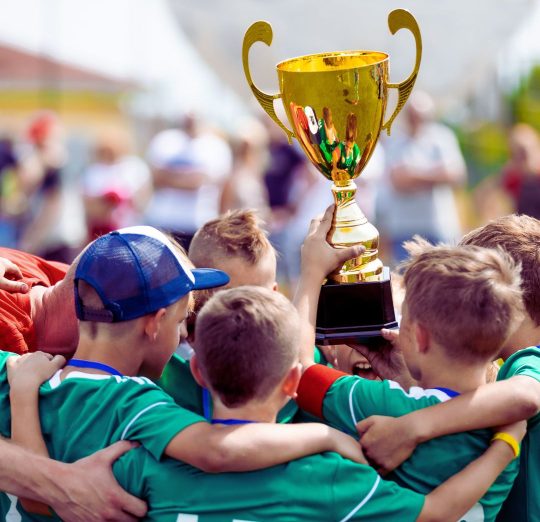Sports Psychologist in Springfield, VA
You want to work on your mental game, but how do you train your brain?
At MindBalanceSPORT, We Train The Other Half Of The Athlete.
You want to work on your mental game, but how do you train your brain?
Mental training does not get much media attention, but at MindBalanceSPORT we know it is a game changer. The mental skills you will learn at MindBalanceSPORT are generalizable in the classroom, in sport and in life!
We know that mental skills can be successfully taught, even at an early age.

Our Services
Meet the Team





testimonials
Athlete Stories: Real Comebacks, Real Results

Emma, a high school basketball player, tore her ACL in the middle of her junior season. After surgery, she struggled with self-doubt and fear every time she stepped back on the court. Through sport psychology training, she learned visualization techniques and confidence-building exercises that helped her regain trust in her knee. When she returned for her senior season, she didn’t just play—she led her team to the playoffs.

Carlos, a soccer player, suffered a stress fracture in his foot and had to miss half of his season. Sitting out was mentally tougher than the pain itself. We worked on mental engagement strategies to keep him sharp—studying game film, setting small rehab goals, and using mental imagery to stay ready. When he was finally cleared, his confidence never wavered.

Jordan, a track athlete, strained her hamstring before a major competition. She feared losing speed and falling behind competitors. Instead of focusing on what she couldn’t do, we redirected her energy toward mental preparation, using self-talk and goal setting to keep her confidence strong. When she returned, she set a new personal record.
EXCELLENTTrustindex verifies that the original source of the review is Google. It was a great help to my 14-year-old competitive volleyball player daughter. Raven was great to understand and connect with her from start to end. We will continue with our sessions as needed.Trustindex verifies that the original source of the review is Google. Great results! I’ve loved working with Paula. Our sessions have greatly improved both the physical and mental aspects of my tennis game. I’m playing better and having more fun! Highly recommend!Trustindex verifies that the original source of the review is Google. Our family had a wonderful experience with Paula Castro. We needed some additional confidence in a particular area/sport and Paula helped get us there. We know who to turn to if we need help again. She’s been a Blessing. Thank you, Paula!Trustindex verifies that the original source of the review is Google. I highly recommend MindBalanceSPORT. Our son works with John Howard. John is very caring, positive, and effective at working with teenagers. John is an adept listener and created an individualized plan tailored to our son’s personality. After just a few sessions with John, we noticed a significant improvement in our son’s motivation and mental approach to sports and life in general. Our son looks forward to meeting with John and tells us that he benefits immensely from their connection.Trustindex verifies that the original source of the review is Google. Paula Castro is an outstanding professional on the field. She has helped my daughter improve her confidence, preparation, and thanks to these session she feels more prepared and motivated. Paula takes the time also to share (what she can) and align with us as parents to be on the same page. Strongly recommended!Trustindex verifies that the original source of the review is Google. MineBalanceSPORT has quickly become the area's expert in sports psychology. Their reputation is well deserved given their incredibly thoughtful, scientifically based approaches to treating performance-related conditions, and I have only heard glowing, positive feedback from those who have engaged in their program. I will also add that Drs. Jones and Chirby presented to us (our group comprises of 15+ doctors and masters level clinicans) about their program and impressed us all with their level of expertise and passion for this field. I give them my highest recommendation.Trustindex verifies that the original source of the review is Google. Dr. Jones was beyond helpful to me throughout our time together. If you are an athlete and you need advice or assistance this is the place to come to. She completely changed my outlook and mindset in a time when I needed her most. I look forward to staying in touch with her and am forever thankful for her expertise.Trustindex verifies that the original source of the review is Google. Paula has been a huge help with my daughter Morgan coming off her injury. It’s been 18 months since she’s played basketball and she’s thriving because I know Paula is guiding her the right direction. As a mother, I’m extremely gratefulTrustindex verifies that the original source of the review is Google. If you are looking for Amazing Psychologists who can help support you in your sports performance, you need to call MindBalanceSPORT! Dr. Chirby and her colleagues are a wealth of knowledge, they have so many helpful techniques for mind balance, and they have so much compassion for the communities that they serve! Highly recommend!!!
Recovery
While Everyone Has A Physical Ceiling, There Is No Mental Ceiling.
Exploring Performance Psychology in Springfield, VA: The Key to Achieving Goals
Exploring Performance Psychology in Springfield, VA: The Key to Achieving Goals
Performance goals are a cornerstone of sports psychology, playing a critical role in enhancing an athlete’s mental focus, motivation, and overall performance. These goals not only provide athletes with direction but also help them measure progress and maintain accountability. Understanding their importance can make a significant difference in how athletes approach their training and competition.
Why Performance Goals Matter
Performance goals are distinct from outcome and process goals, as they center on specific achievements within an athlete’s control. For example:
– Outcome Goals: Winning a competition or achieving a medal.
– Process Goals: Focusing on aspects of technique or form during training.
– Performance Goals: Improving measurable metrics like reducing sprint time or increasing free-throw accuracy.
By targeting these controllable aspects of performance, athletes develop:
– Clarity: A clear roadmap for improvement.
– Confidence: Incremental successes that reinforce self-belief.
– Engagement: A focus on personal growth instead of external pressures like winning.
Psychological Benefits
- Improved Motivation – Athletes who set performance goals often feel more energized to train consistently as their efforts align with tangible benchmarks.
- Reduced Anxiety – By focusing on controllable factors rather than unpredictable outcomes, athletes feel less pressure during competitions.
- Enhanced Focus – Performance goals channel attention toward specific tasks and techniques rather than distractions.
Goal Types in Sports Psychology
| Goal Type | Description | Example |
| Skill Development | Mastering new techniques or skills | Perfecting the high jump technique |
| Physical Development | Enhancing physical attributes | Increasing VO2 max by 10% |
| Tactical Awareness | Improving decision-making during play | Identifying passing opportunities faster |
Common Mistakes to Avoid When Setting Performance Goals
While setting performance goals is crucial, there are common pitfalls many athletes face:
– Setting vague or overly broad objectives (e.g., “improve at running”).
– Creating unrealistic targets that lead to frustration or burnout.
– Failing to track progress over time, making adjustments difficult.
By understanding these challenges, athletes—and sports psychologists—can create structured plans that align with both short-term needs and long-term aspirations.
Understanding the role of performance goals helps lay the groundwork for effective goal-setting strategies discussed further in this guide for maximizing athletic potential through sports psychology principles.
Maximizing Potential Through Sport Performance Training in Springfield, VA
Performance goals are a fundamental concept in sports psychology. They offer direction, motivation, and a clear framework for athletes to improve their skills and optimize performance. Without clearly defined goals, athletes may struggle to maintain focus or develop the mental resilience needed for success. Understanding why performance goals matter is essential for both athletes and coaches seeking long-term growth.
How a Sports Mental Coach in Springfield, VA Can Help You Achieve Performance Goals
- Clarity of Purpose
Goals provide athletes with a roadmap for their training and competition strategy, reducing ambiguity around what they are working towards. - Enhanced Motivation
Well-defined objectives keep athletes motivated by offering tangible milestones to strive for during training sessions or games. - Improved Focus
With specific goals in mind, distractions are minimized. Athletes can channel their mental energy toward achieving measurable outcomes. - Measurable Growth
Tracking progress becomes easier when clear benchmarks are established, allowing both coaches and athletes to evaluate strengths and areas needing improvement. - Increased Confidence
Reaching set objectives builds self-belief while highlighting an athlete’s ability to achieve success through effort and discipline.
Exploring Sports Psychiatry in Springfield, VA for Achieving Performance Goals
| Goal Type | Description | Example |
| Process Goals | Focus on specific techniques or actions within a performance or practice. | Improve free-throw accuracy by practicing 50 shots daily. |
| Performance Goals | Centered on measurable benchmarks tied directly to individual performance. | Run a 5km race in under 20 minutes by the end of the season. |
| Outcome Goals | Concerned with competitive results relative to others or rankings. | Secure a top-3 position in an upcoming tournament. |
Each type plays an important role in overall athletic development but should be used strategically depending on the athlete’s needs and context.
Finding the Right Sports Psychologist Near Me for Balanced Performance Goals
- Short-Term Process Goals: Help refine technical skills while providing immediate results.
- Mid-Term Performance Goals: Serve as checkpoints for progress toward long-term aspirations.
- Long-Term Outcome Goals: Encourage sustained effort over extended periods while keeping bigger objectives in sight.
Focusing only on outcome-oriented milestones can lead to frustration if external factors (like competitor performance) dominate results; hence, integrating process-based elements ensures consistent improvements independent of external variables.
By understanding these principles behind performance goals, athletes can build a structured approach toward success that enhances not just physical abilities but also mental resilience—a key attribute in sports at all levels.
How Sports Psychologists in Springfield, VA Help Break Down Athletic Objectives into Actionable Steps
One of the most effective ways to enhance athletic performance is by breaking down broader objectives into smaller, actionable, and measurable steps. Large goals can often seem overwhelming, but creating a structured plan makes them less intimidating and more attainable. This process also helps athletes stay motivated and focused on their journey toward improvement. Below is a detailed guide on how to segment athletic goals into manageable tasks.
Benefits of Breaking Down Goals
- Clarity: Identifying specific steps provides a clearer path toward achievement.
- Focus: Smaller goals help athletes prioritize their efforts and avoid distractions.
- Motivation: Seeing progress in smaller increments boosts confidence and sustains motivation over time.
- Accountability: Measurable steps help athletes track their progress objectively.
1. Start with the Big Picture
Begin by defining the overarching athletic goal. These are typically long-term aspirations, such as qualifying for a championship, improving endurance, or mastering specific skills like perfecting a tennis serve or increasing sprint speed.
2. Divide Goals into Phases
Segment your ultimate objective into distinct phases that align with key milestones or timelines. For instance:
| Long-Term Goal | Phase | Timeline |
|————————-|———————-|—————-|
| Run a marathon | Build base mileage | Months 1–3 |
| | Increase weekly miles| Months 4–5 |
| | Taper training | Final month |
3. Set SMART Subgoals
Each phase should be supported by SMART (Specific, Measurable, Achievable, Relevant, Time-bound) subgoals. Examples include:
– Specific: “Complete three interval training sessions per week.”
– Measurable: “Increase squat weight by 10% in eight weeks.”
4. Identify Actionable Steps for Each Subgoal
Example for improving endurance: – Perform two long runs weekly at lower intensity. – Incorporate cross-training (e.g., cycling or swimming) once per week. – Focus on proper nutrition to fuel longer sessions.
Tracking Progress Effectively
To ensure steady progress: 1. Use tools like training journals or apps to document workouts. 2. Schedule regular performance reviews with coaches or sports psychologists to assess achievements. 3. Adjust plans based on feedback or unforeseen challenges.
Common Mistakes When Breaking Down Goals
Avoid these errors when creating actionable steps: – Setting overly ambitious short-term targets that lead to burnout. – Failing to adjust objectives if circumstances change (e.g., injuries). – Ignoring qualitative factors such as mental well-being during training phases.
Breaking down objectives not only simplifies complex goals but also provides athletes with a sense of control over their development process, fostering resilience and sustained effort throughout their journey in sports excellence.
Achieve Your Athletic Goals with Expert Sports Counselling in Springfield, VA
One of the key principles of effective sports psychology is helping athletes break down their goals into smaller, actionable, and measurable steps. This approach not only makes the process more manageable but also provides a clear roadmap for achieving long-term aspirations. Here’s how athletes can effectively break down their objectives.
Why Breaking Down Goals Matters
Athletes often have ambitious long-term goals, such as winning championships or achieving personal bests in their sport. While these overarching goals are important for motivation, they can sometimes feel overwhelming. By breaking them down into smaller parts, athletes can focus on daily or weekly progress, which fosters a sense of accomplishment and keeps them motivated.
This process also:
– Reduces anxiety by creating clarity around what needs to be done.
– Enhances focus by aligning training with specific milestones.
– Makes tracking progress easier through measurable benchmarks.
Steps to Break Down Athletic Objectives
- Define the Ultimate Goal
Start by clearly identifying the end goal. For example: - Run a marathon under 4 hours within six months.
- Improve free-throw accuracy in basketball by 10% over the next season.
- Identify Key Competencies Required
Determine the areas that need improvement or development to achieve the ultimate goal. For instance: - Endurance and pacing for marathon running.
- Technique and consistency for free throws in basketball.
- Create Smaller Sub-Goals
Divide the larger objective into smaller, time-bound sub-goals that address individual competencies: - Weekly mileage increases for runners.
- Daily shooting drills focused on form and accuracy for basketball players.
- Use SMART Criteria
Ensure each sub-goal is Specific, Measurable, Achievable, Relevant, and Time-bound (SMART). For example:
| Objective | Specific Action | Measurement | Timeline |
| Improve endurance | Run 5 miles at an even pace | Track pace/mile | 3 weeks |
| Boost accuracy | Shoot 100 free throws daily | Record success rate | 1 month |
- Develop Daily Habits
Establish routines that contribute consistently to sub-goals: - Morning runs or gym sessions tailored to targeted improvements.
- Visualization exercises to mentally practice techniques.
- Evaluate Challenges and Adjust Plans
Anticipate potential obstacles (e.g., injuries or time constraints) and be ready to adjust strategies when necessary.
Benefits of Measurable Steps
Breaking objectives into measurable components allows athletes to build confidence as they accomplish smaller tasks along the way to their overarching goals. Measuring progress regularly ensures accountability while providing opportunities for reflection and adjustment if needed.
By following these structured steps, athletes gain clarity in their training plans while maintaining motivation through ongoing achievement markers—ultimately enhancing both performance and mental resilience in competitive environments.
Monitoring Progress Regularly to Build Mental Toughness and Focus in Sports
Monitoring progress is a critical element of performance improvement in any athletic endeavor. Regular assessment not only keeps athletes on track but also fosters mental toughness, sharpens focus, and enhances self-awareness. By embedding structured monitoring processes into training routines, athletes can develop a growth-oriented mindset and consistently refine their skills.
Benefits of Regular Progress Monitoring
- Improved Accountability:
Regular check-ins ensure that athletes remain accountable for their goals and actions, minimizing distractions or complacency. - Enhanced Motivation:
Tracking progress allows for the recognition of small victories, which can inspire athletes to stay committed to their long-term objectives. - Identification of Strengths and Weaknesses:
Periodic evaluations help identify areas where an athlete excels and aspects requiring improvement. This enables more targeted training plans. - Building Mental Resilience:
Monitoring provides insights into fluctuations in performance, teaching athletes how to adapt under varying circumstances and thrive under pressure.
Best Practices for Effective Progress Monitoring
- Set Clear Metrics: Use quantifiable benchmarks (e.g., time, distance, accuracy) linked to specific goals for objective evaluation.
- Utilize Performance Journals: Encourage athletes to document outcomes after every practice or competition, noting successes, setbacks, and lessons learned.
- Leverage Technology: Wearable devices and apps that track metrics such as heart rate variability or speed can provide real-time feedback on performance trends.
- Seek External Feedback: Coaches or sports psychologists can offer valuable perspectives by evaluating technical form, mental approach, and consistency.
Tools for Tracking Performance
| Tool Type | Example | Purpose |
| Wearable Devices | GPS watches (Garmin), Whoop | Track physical metrics like pace or recovery |
| Journaling Apps | Athlete log apps (TrainingPeaks) | Document daily reflections |
| Video Analysis | Dartfish | Analyze movement patterns |
Role in Building Mental Toughness
- Positive Reinforcement: Recognizing achievements reinforces confidence while reducing fear of failure.
- Learning Through Setbacks: Reflecting on poor performances facilitates problem-solving skills essential for resilience in high-pressure situations.
- Visualization Techniques: Reviewing past progress allows athletes to visualize future success based on tangible results.
By tracking progress with intentionality and structure, athletes enhance both their physical abilities and psychological readiness. The process forms the foundation necessary for achieving peak performance consistently over time.
Celebrating Success: The Psychological Benefits of Acknowledging Athletic Achievements
Acknowledging achievements in sports is not only about recognition but also plays a significant role in an athlete’s psychological growth. Celebrating success—whether it’s a small milestone or a major victory—can reinforce positive behaviors, boost confidence, and sustain motivation. Below, we’ll explore why this practice is so important and how it impacts athletes’ mental well-being.
The Psychological Impact of Celebrating Success
- Enhanced Self-Esteem: Recognizing progress helps athletes feel valued and capable, fostering healthy self-confidence.
- Increased Motivation: Celebrations serve as reminders of the effort-reward relationship, propelling athletes to maintain or improve performance.
- Stress Reduction: Acknowledging accomplishments provides mental relief from the pressures of constant competition.
- Stronger Team Relationships: In team sports, collective celebration strengthens bonds and promotes camaraderie among members.
Types of Milestones Worth Celebrating
| Type of Milestone | Examples |
| Skill Development | Mastering a new technique or drill |
| Performance Improvements | Achieving personal bests in training |
| Consistency | Maintaining focus during consecutive games/training sessions |
| Overcoming Setbacks | Recovering from injury or mental fatigue |
| Team Successes | Executing coordinated strategies effectively |
By celebrating these types of milestones, athletes develop appreciation for consistent effort rather than fixating solely on final outcomes.
Practical Ways to Celebrate Athletic Achievements
- Reflection Journals: Encourage athletes to document progress, highlighting obstacles they overcame and how they feel about achieving specific goals.
- Public Recognition: Coaches can acknowledge successes during practice sessions or team meetings to emphasize their importance.
- Tangible Rewards: Small tokens like certificates, medals, or even simple rewards like extra rest days can motivate further efforts.
- Social Media Highlights: Share accomplishments online (with consent) to inspire other athletes while celebrating individual/team victories.
- Ceremonial Celebrations: Organize post-game gatherings where teammates reflect on challenges faced and successes earned.
Encouraging Sustainable Growth
While celebrating success is critical, overemphasis on achievement without context can lead to unhealthy pressure in sports psychology. Balance celebrations with constructive feedback by ensuring that recognition focuses on effort rather than just outcomes.
For instance: – Praise hard work and resilience over just “winning.” – Highlight lessons learned from failures alongside discussions about success. – Reinforce intrinsic motivation by focusing on personal growth instead of comparing performance against others.
This balanced approach ensures that celebrations contribute positively toward an athlete’s long-term psychological development rather than creating unnecessary stress.








